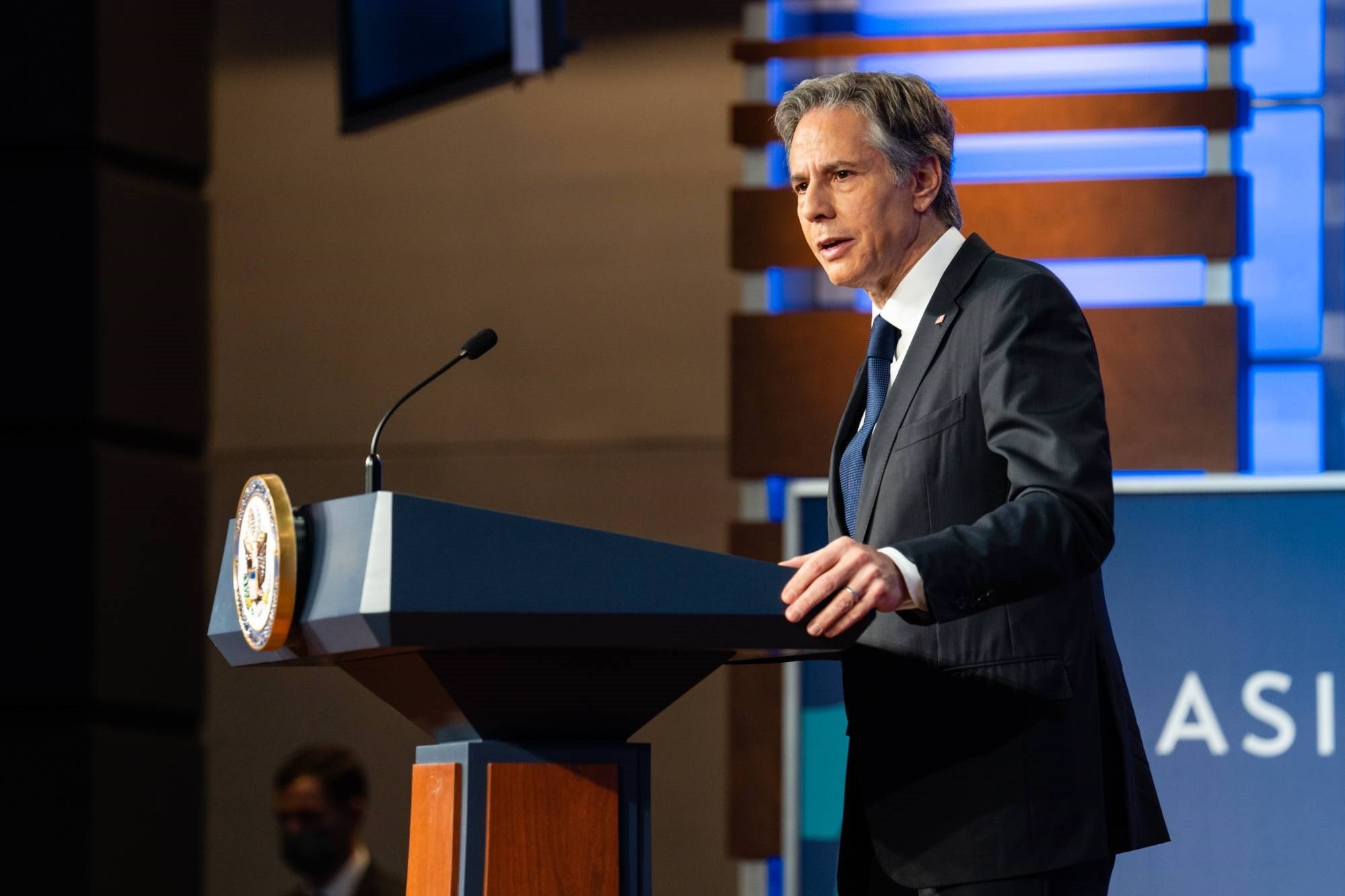China poses greater challenge to world older than Russia: US
US Secretary of State Antony Blinken outlines his country's strategy toward China, claiming that Beijing was more of a threat than Moscow.
-

US Secretary of State Antony Blinken (Bloomberg)
US Secretary of State Antony Blinken delved into the details of the Biden administration's policy on China, which entails leading the countries opposed to Russia over the Ukraine war into a coalition that aims to curb what Washington claims is a "more serious threat" posed by Beijing.
While the US sees that the war in Ukraine constitutes the most immediate threat to international stability, the Biden administration believes China jeopardizes it on a greater scale, Blinken said Thursday in Washington.
"Even as President Putin's war continues, we will remain focused on the most serious long-term challenge to the international order - and that is the one posed by the People’s Republic of China," he asserted.
According to Washington's top diplomat, the international response to the Ukraine war could serve as a "template" for curbing the Chinese efforts aiming to create a new, unpredictable world order.
"China is the only country with both the intent to reshape the international order - and, increasingly, the economic, diplomatic, military, and technological power to do it," he claimed after the US worked on shaping the international order in a way that best suits its interests.
China, he alleged, has greatly benefited from the status quo of the world order based on rules and institutions put at the end of World War II and has guided international relations ever since.
Blinken sees that China is undermining laws, agreements, principles, and institutions that enabled its success instead of working to reinforce and revitalize them.
The US, through its policy declared by the top diplomat, is planning on following China's approach: Washington will invest in its domestic infrastructure and technology while simultaneously reaching out to potentially "vulnerable countries" diplomatically to try and up its cooperation with other countries who are not already partners with the United States.
The US is not seeking to change China's political system, Blinken further claimed. However, it will "shape the strategic environment around Beijing to advance our vision for an open and inclusive international system."
He did however acknowledge China's pivotal role in global economics and solutions to problems such as the ongoing climate crisis and the COVID-19 pandemic.
Beijing's position means that the United States and China have no choice but to deal with each other. This makes US-Sino relations "one of the most complex and consequential relationships of any that we have in the world today," according to Blinken.
Blinken's words came after President Joe Biden visited South Korea and Japan during his first trip to Asia since taking office in January of last year.
Before Biden made it to Japan and in preparation for the Summit, the Tokyo police deployed a record of 18,000 police officers to ensure the safety of the leaders coming from various nations. The police will pay special attention to major stations, airports, and the US embassy in Tokyo.
US Army Chief of Staff General Mark Milley underlined that his country was being tested in Europe through the war in Ukraine, "in Asia by China’s dramatic economic and military growth as well as DPRK's nuclear and missile threats, and in the Middle East and Africa by instability from terrorists," The Associated Press quoted him as saying.

 3 Min Read
3 Min Read








